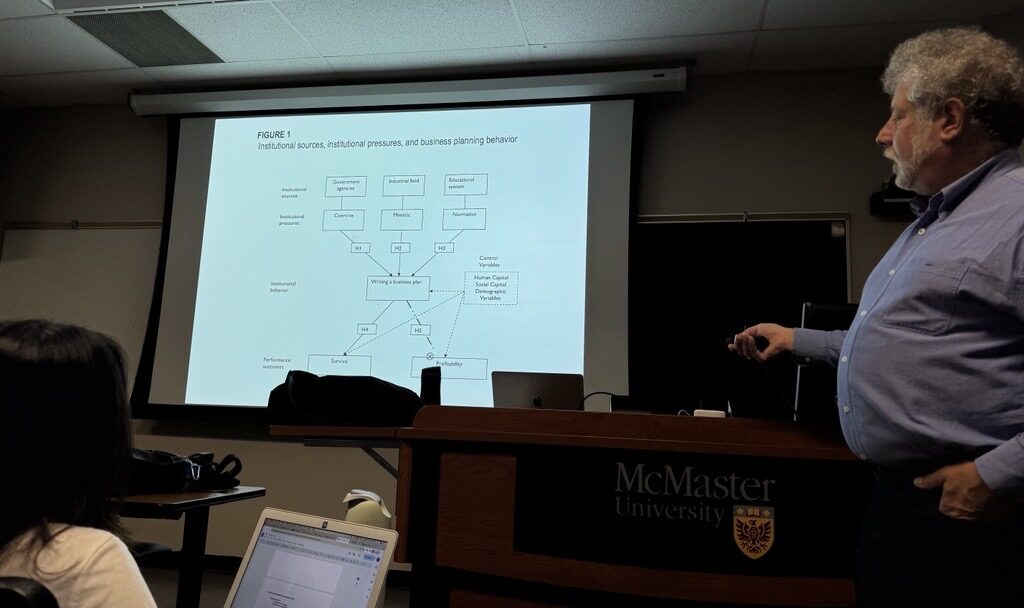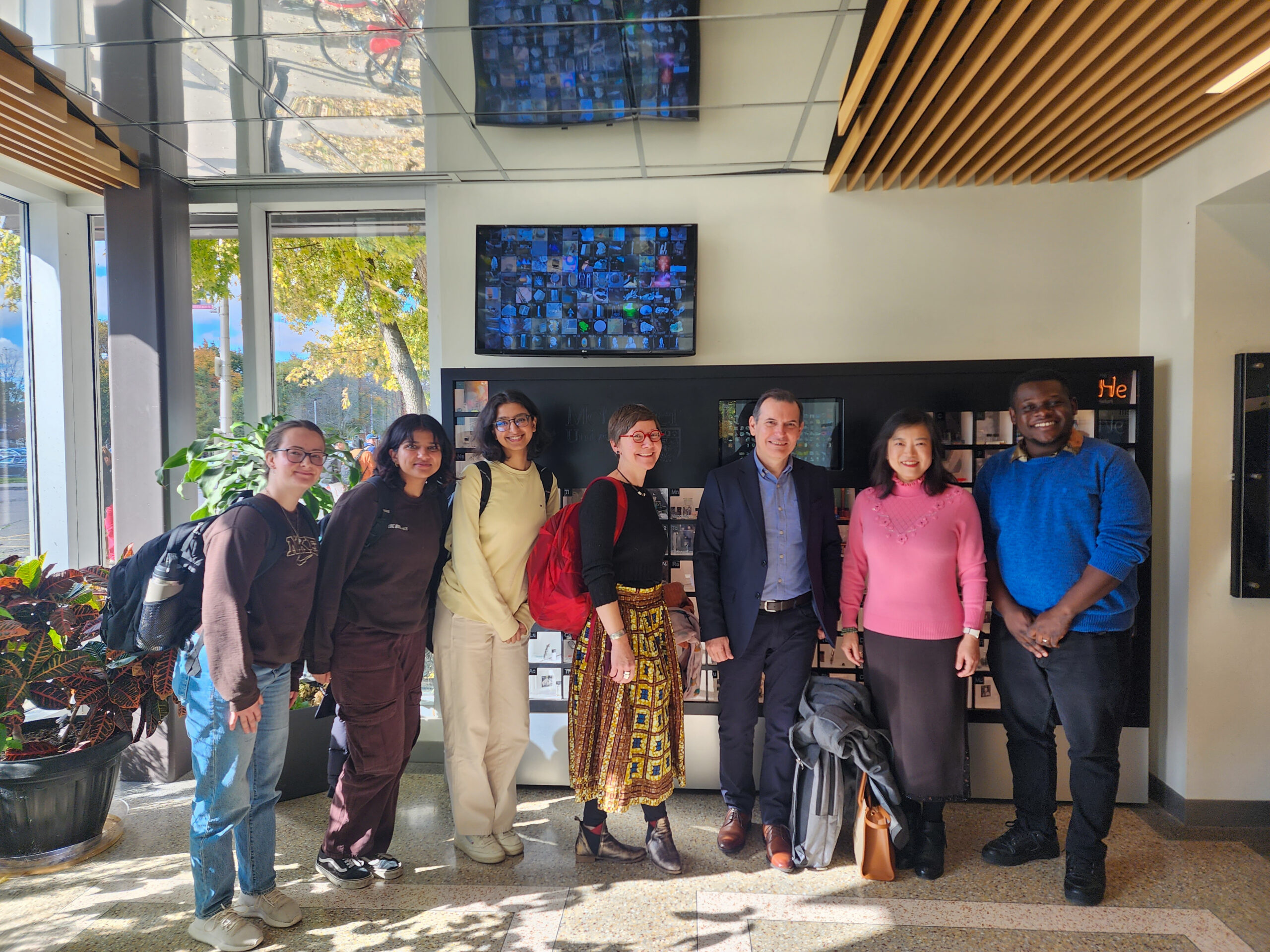Turning Knowledge into Solutions: Exploring How Universities Can Foster Social Impact

This blog post was written by Global Health MSc Student Keishini Selvaganesh.
“It’s not about us, it’s about taking an idea and diffusing it,” stated Dr. Benson Honig during his engaging Global Health Seminar. Drawing on his extensive academic and entrepreneurial background, Honig, who serves as the Chair in Entrepreneurial Leadership at DeGroote School of Business and Director of the Centre for Research on Community Oriented Entrepreneurship at McMaster University, stressed the importance of universities as not only idea formation labs, but as crucial catalysts for turning knowledge into innovative solutions.
While universities are vital to economic development, Honig argued that their role must extend beyond this. He explained that universities must focus on equipping individuals with skills to better serve their communities, foster critical thinking, and drive social progress. He demonstrated this approach’s potential through the example of the Reframery, a virtual incubator funded by McMaster University in 2020. Motivated by his passion to support communities disproportionately impacted by the COVID-19 pandemic, Honig spearheaded the Reframery to help groups and individuals kick-start their businesses. This incubator, which supports entrepreneurial minds from marginalized backgrounds to gain independence and self-efficacy, has now expanded its global reach by fostering mentorship and connections across various countries, such as Kenya, Brazil, and among Ukrainian refugees in Poland. Honig and his team have interacted with these communities and figured out what the community needs are before collaboratively coming up with action plans. Honig’s virtual incubator highlights the way universities can extend their impact to empower communities across borders as he remarked that this is “not only a scientific problem, this is a social problem.”
Throughout his talk, Honig drew attention to the numerous success stories of the individuals his project has helped. One story featured a woman living in Kenya who wanted to help the individuals in her community through a new business. Honig and his team provided guidance to support her develop a peanut butter business, which is an especially important product for individuals with HIV living in her community because of its nutritional value. With the support of the Reframery, she now has half a dozen individuals working for her and sells her peanut butter in grocery stores. Above all, she successfully empowered her community, many of whom are Kenyan sex workers living with HIV.
As a testament to the ripple effect started by the Reframery, Honig shared the story of the Kenyan government having to bulldoze areas impacted by severe flooding. Several of his students’ businesses were destroyed, with one student only salvaging a couch from the wreckage. Determined to stand up in the face of adversity and with the training they received, individuals came together to support one another and are on track to create a retirement home to serve their community. Thus, what started as a program to help entrepreneurs has now sparked a system in which program graduates continuously support each other.
Honig’s seminar highlighted that it is not the idea on its own that carries power, but it’s within people who pass it forward, the minds who adapt it, and the lives it touches. Hence, by embedding this principle into its operations, universities can amplify their members’ potential to serve their communities, create meaningful networks, and promote holistic impact.
Student Blog
Related News
News Listing

November 12, 2024

November 5, 2024

Pollution, Power, and Protest: Unpacking Environmental Racism from Africville to Wet’suwet’en
Student Blog
October 10, 2024
